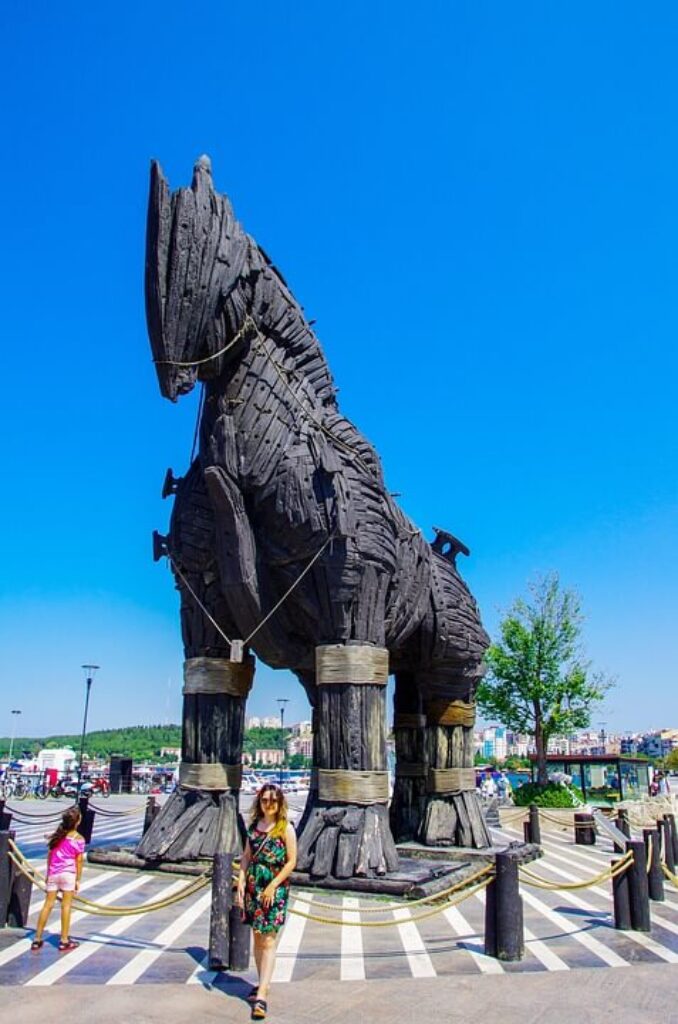

Kalchas Soothsayer and prophet of the Achaians. Idomeneus The King of Crete and one of the most efficient of the Achaian leaders, he has the respect and liking of the whole Achaian army. Supposedly, she is the most beautiful woman in the world however, she is also self-centered. Helen Originally married to Menelaos, she ran away to Troy with Paris and became his wife. He is the son of Oileus and is often called Oilean Aias.Īntilochos The son of Nestor a brave young warrior who takes an active part in the fighting and the funeral games.Īutomedon The squire and charioteer of Achilles. Their parents are usually mortals, and they are not given aristeias in the Iliad.Īias the Lesser A distinguished warrior, but insolent and conceited. Warriors tend to be somewhat lesser individuals than the heroes are, although still much greater than ordinary men. He is often referred to as "Gerenian Nestor." Although he can no longer fight, he remains at the front line at every battle, commanding his troops. Nestor has all the wisdom and experience of age and is a valuable asset in the council. Nestor The oldest of the Achaian warriors at Troy. Epithet: "Seed of Zeus." Chief virtue: intelligence motivated by persistence, which is his humanity. Odysseus The shrewdest and most subtle of all the Achaians and a brave warrior besides, as he demonstrates on many occasions. He is sometimes called "lord of the battle cry."Īias (Ajax) Son of Telamon, he is often called Telamonian Aias his reputation is due primarily to brute strength and courage, which are his virtues in the poem. He is, perhaps, Homer's vision of the perfect young nobleman.

His humanity stems from his broad mindedness that makes him a weak king.ĭiomedes He ranks among the finest and bravest of the Achaian warriors he is always wise and reasonable and is renowned for his courtesy and gallantry. His humanity stems from his great passion.Īgamemnon The well-meaning but irresolute king of Mycenae commander-in-chief of the expedition against Troy.

He is willing to subvert the good of the whole army and to endanger the lives of those who are closest to him to achieve emotional blackmail. The most significant flaw in the temperament of Achilles is his excessive pride. Each of the greatest of these noble heroes is given an aristeia, or greatest moment in battle, somewhere in the Iliad.Īchilles The central character of the Iliad and the greatest warrior in the Achaian army. Overall, heroes lived by four rules: arete, the pursuit of excellence, as exemplified by valor in battle, and nobility, as exemplified by skill in speech and diplomacy. In terms of status, heroes are below the gods but above the ordinary warriors. For example, Achilles is the greatest warrior, but he is also petulant and self-centered. Each hero is distinguished by a virtue but may also have an accompanying vice. Heroes are of such stature that they sometimes provoke envy from the gods and on occasion may even fight with a god. Some may have a divine or semi-divine parent, though the hero himself is still mortal and subject to death, unlike the gods. The heroes, however, are presented literally as greater human beings than the ordinary warriors. In the Iliad certain heroic characters play major roles in the battles even though the reader knows that many more common soldiers must be involved.


 0 kommentar(er)
0 kommentar(er)
